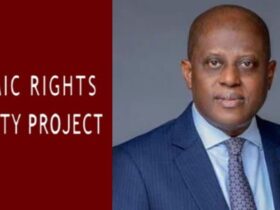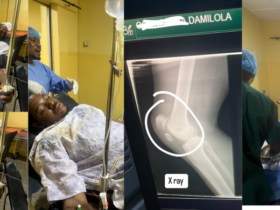
The Economic and Financial Crimes Commission (EFCC) has lodged a three-count charge against the well-known Instagram personality Pascal Okechukwu, also known as Cubana Chief Priest.
The charges allege that he sprayed and tampered with the naira at a social gathering, contravening the provisions of the Central Bank Act of 2007.
Cubana Chief Priest is scheduled to appear before Justice Kehinde Ogundare of the Federal High Court in Lagos on Wednesday, April 17th, 2024.
This is coming days after the EFCC arraigned controversial cross-dresser Idris Okuneye better known as Bobrisky on similar charges for which he was sentenced to a six-month jail term.
A copy of the charge, filed on April 4th, was obtained by Channels Television. The charge was submitted by EFFC’s prosecutor, Rotimi Oyedepo (SAN), along with seven other lawyers representing the Commission.
In Count 1, it was alleged, “that you, Okechukwu Pascal on 13th Feb. 2024, at Eko Hotel, within the jurisdiction of the court, while dancing during a social event, tampered with funds in the denomination of N500 (Five Hundred Naira) issued by the Central Bank of Nigeria by spraying same for two hours, and you thereby committed an offence, contrary to and punishable under Section 21(1) of the Central Bank Act 2007.”
READ ALSO: Court Grants Adeleke’s Appointee N50m Bail Amid Accusations of Killing,Terrorism
In count 2, it was alleged, “that you Okechukwu Pascal sometime in 2020, in Lagos during a social event, tampered with funds in the denomination of N500 (Five Hundred Naira) issued by the Central Bank of Nigeria by spraying same for two hours, and you thereby committed an offence, contrary to and punishable under Section 21(1) of the Central Bank Act 2007.”
In Count 3, it was alleged, “that you Okechukwu Pascal sometime in January 2024, in Lagos during a social event, tampered with funds in the denomination of N500 (Five Hundred Naira) issued by the Central Bank of Nigeria by spraying same and you thereby committed an offence, contrary to and punishable under Section 21(1) of the Central Bank Act 2007.”









Leave a Reply